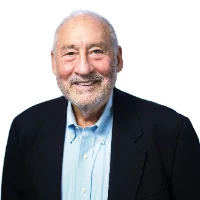Events
Upcoming public events

Finding the white working class in multicultural nationalism
Thursday 12 March 2026, 6.30 to 8.00pm. In-person and online public event. LSE Marshall Building 1.04.
Speakers:
Professor John Denham, Professorial Research Fellow and Director of the Centre for English Identity and Politics, Southampton University
Professor Sara Hobolt, Sutherland Chair in European Institutions and Head of Deparment, LSE Department of Government
Professor Anand Menon, Professor of European Politics and Foreign Affairs, King's College London; Director, UK in a Changing Europe
Dr Sam Taylor Hill, Programme Manager of the Orwell Youth Prize and IR Teaching Associate, University of BristolChair:
Professor Mike Savage, Professorial Research Fellow, LSE IIIAs Reform UK gains traction among white working-class voters, Labour faces renewed pressure to define its national story. With the revival of ‘Blue Labour’ social conservatism, the party faces a defining challenge: can it tell a national story that includes everyone?
This event explores how Labour’s electoral strategy reflects a zero-sum approach that struggles to hold together its diverse coalition. It develops the idea of multicultural nationalism as a more inclusive framework – one that seeks to bring both ethnic minorities and disaffected white working-class communities into a shared sense of belonging. Can Labour move beyond choosing between factions to build a pluralistic and cohesive vision of Britain?
Our panel will discuss these questions and consider the possibilities of building a national project that truly reflects the country’s diversity.

How stories can transcend borders and boxes of identity
Hosted by the Atlantic Fellows for Social and Economic EquityWednesday 18 March 2026, 6.30pm - 8pm. In-person and online public event. Old Theatre, LSE Old Building.
Speakers:
Elif Shafak, Novelist and Storyteller
Lily Jamaludin, Writer and Atlantic Fellow for Social and Economic EquityChair:
Professor Armine Ishkanian, Executive Director, Atlantic Fellows for Social and Economic Equity; Professor, Department of Social Policy, LSEBy drawing upon multiple disciplines and weaving these threads into the broader practice of literary arts, the Turkish-British writer Elif Shafak offers an inspirational talk about our world today, the stories that bring us together, and the silences that keep us apart.
For a long time, philosophers and artists have asked the question: how can we balance vita activa (the active life) and vita contemplativa (the contemplative life)? Now an additional challenge is added to the equation: vita apathetica (life of apathy/life without passions). Too much information causes an emotional and intellectual fatigue, exacerbating this state of apathy—numbness, indifference. Literature is the antidote to this state. In this AFSEE Keynote Lecture, Elif Shafak, joined by discussant Lily Jamaludin, will reflect on what literature and art, more specifically the art of storytelling, can offer us at this moment.

How can we solve the inequality emergency?
Tuesday 21 April 2026 4.30pm - 5.30pm. In-person and online public event. Old Theatre, LSE Old Building.
Speaker:
Professor Joseph Stiglitz, University Professor, Columbia University and winner of the 2001 Nobel Memorial Prize in EconomicsChair:
Professor Larry Kramer, President and Vice Chancellor of LSEGlobal inequality has reached a tipping point. Since 2000, the richest 1% have captured 41% of all new wealth, whilst just 1% went to the bottom half of the population.
In 2025, at the request of President Cyril Ramaphosa of South Africa, Joseph Stiglitz was asked to lead a committee of global experts to prepare a report on global inequality, to be presented to the G20. The final report outlined the drivers of extreme inequality, its consequences and its solutions. The report declared an inequality emergency that is on par with the climate emergency and should be treated as such. Its main recommendation is for the establishment of a new International Panel on Inequality, which would play a similar role to the Intergovernmental Panel on Climate Change. This proposal has been championed by the governments of Spain, Brazil, Norway and South Africa, and many leading economists and experts, including former Treasury Secretary Janet Yellen, Thomas Piketty and Nobel Prize winner Daren Acemoglu.
At this event, Professor Stiglitz will discuss the report and its findings. He will outline how an International Panel on Inequality could address the global inequality emergency.

Who is Britain really saving in the fight against modern slavery?
Wednesday 6 May 2026 6.30pm - 8pm. In-person and online public event. Malaysia Auditorium, LSE Centre Building.
Speakers:
Liz Fekete, Director, Institute of Race Relations and Advisory Editor, Race & ClassI
Professor Insa Lee Koch, Professor, University of St. Gallen in Switzerland and Visiting Professor, LSE Law School
Kojo Kyerewaa, National Organiser, Black Lives Matter UK
Glodi Wabelua, Community advocate and host of the GloTalks podcastChair:
Professor Coretta Phillips, Professor of Criminology and Social Policy, LSE Department of Social PolicyAs Black Lives Matter has exposed the legacies of transatlantic slavery and empire, Britain has launched a new moral crusade at home: the fight against “modern slavery.” This panel discussion marks the launch of Drugs, Race and the Politics of Modern Slavery Law by Insa Lee Koch and asks what this crusade is really doing.
Focusing on the Modern Slavery Act 2015 and the policing and prosecution strategies enabled in its wake, the panel examines how young Black and racialised working-class men involved in Britain's street level economy of heroin and crack cocaine — once criminalised under the war on gangs — are now recast as "modern slaves" and their "masters". Central to the discussion is Glodi Wabelua, the first young man convicted under modern slavery laws for a county lines drugs offence. Bringing together ethnographic insights, leading anti-racism campaigners and lived experience, the event interrogates how modern slavery law deepens racial inequality while allowing Britain to deny its imperial past.
Previous public events
Catch up on all of our past events here.